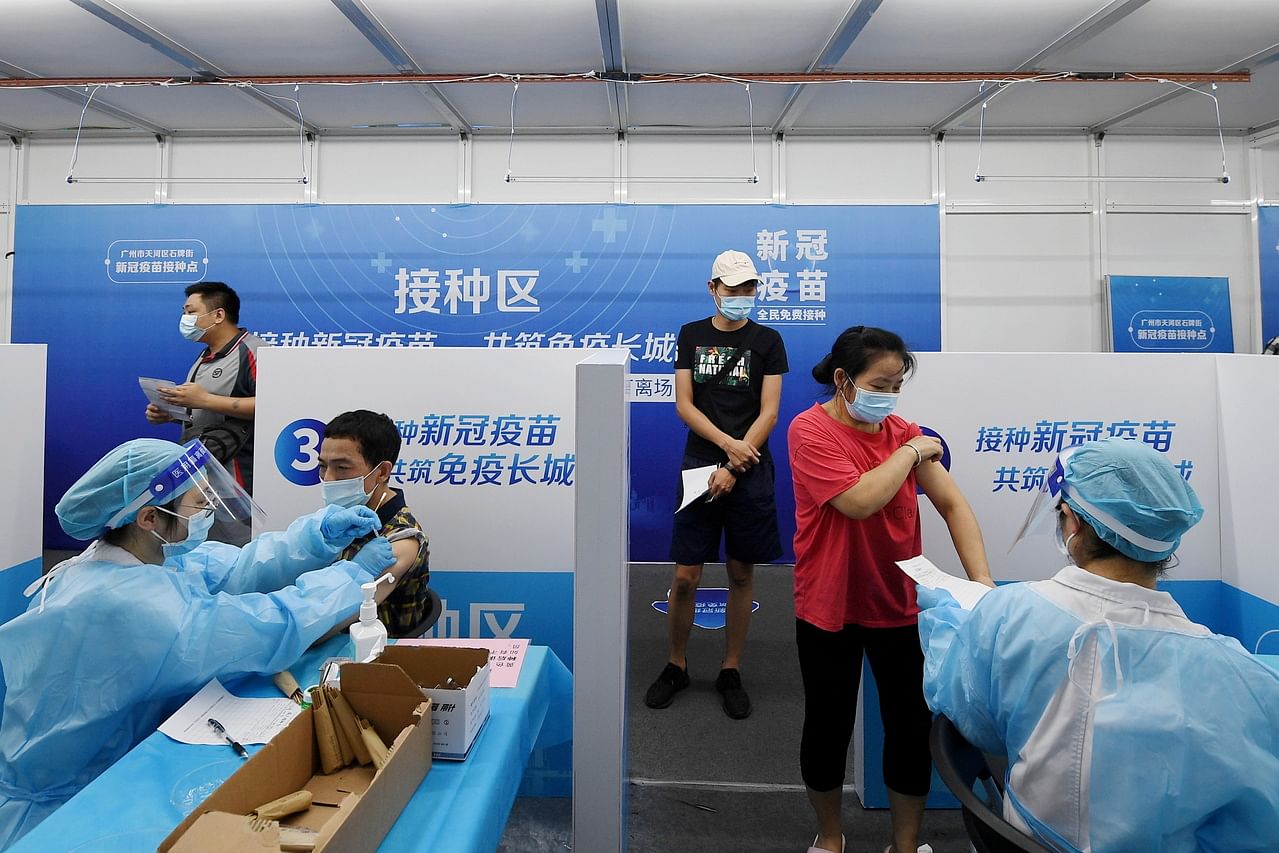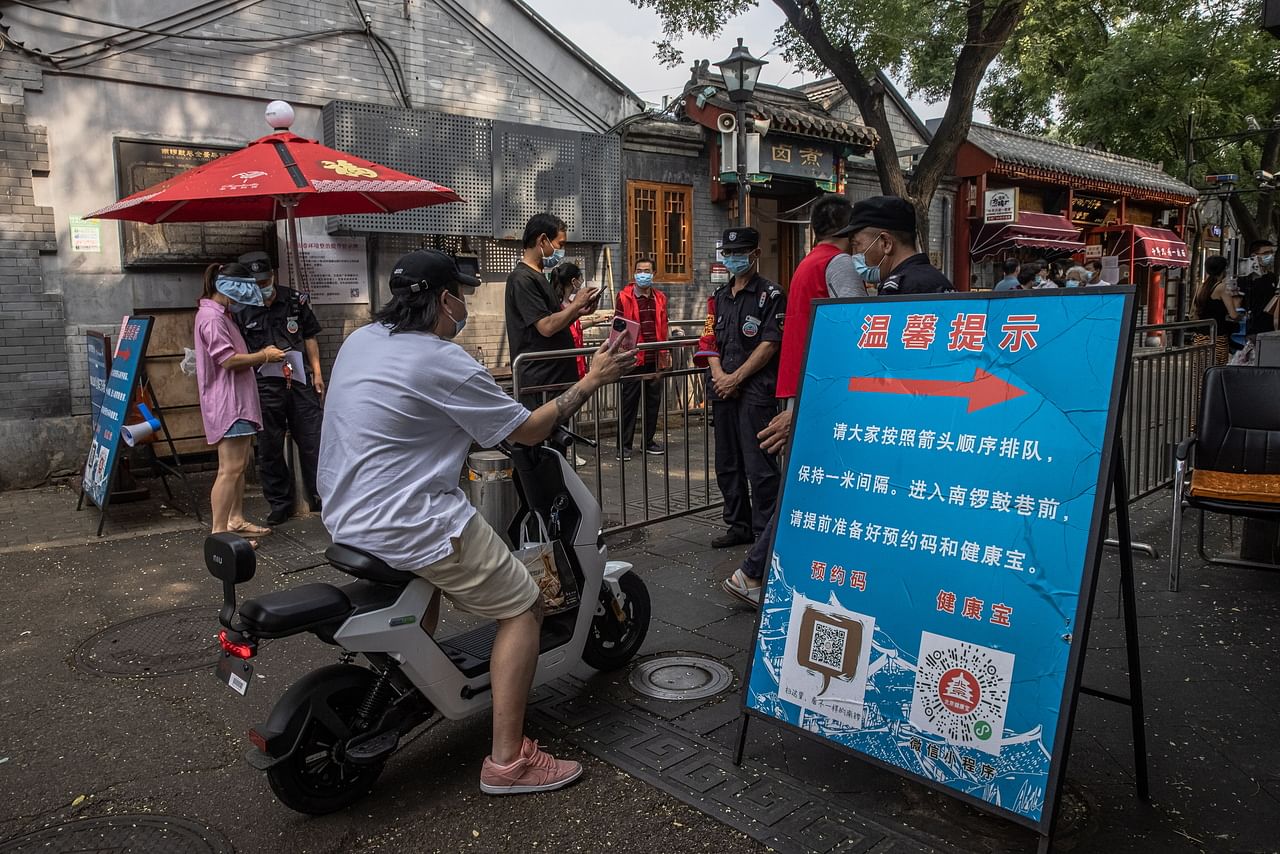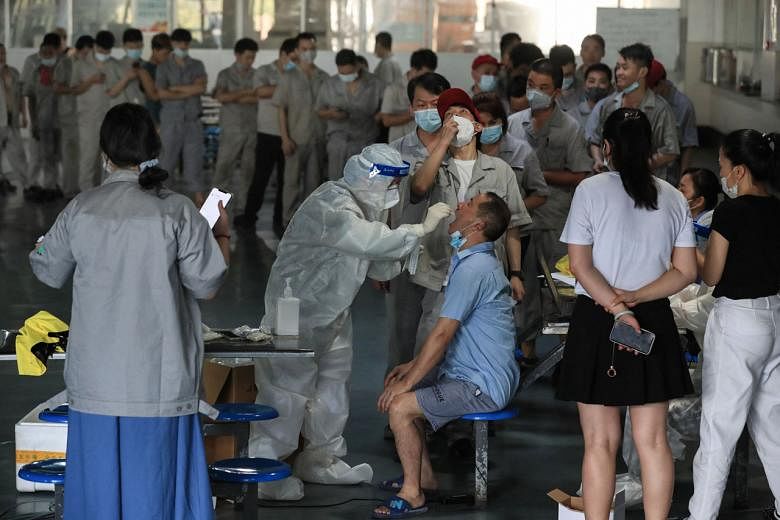BEIJING - Wuhan noodle shop owner Sun Bin thought the worst of the Covid-19 pandemic was over when he reopened for business in the spring of 2020.
The city had just emerged from a 76-day lockdown. Then, barely a month later, a resurgence of infections prompted a round of mass testing and targeted lockdowns in what was then the epicentre for the disease. Mr Sun's business weathered that storm too.
More than a year later, the central Chinese city appeared to be back on its feet and the 35-year-old noodle maker even managed to take his family to nearby Huanggang for a vacation.
But on Tuesday (Aug 3), it was almost deja vu: Local transmission of Covid-19, brought to Wuhan by migrant construction workers, meant that the city's 11 million residents had to be swab tested en masse.
For nearly a year, it looked like China had provided a model on how a post-Covid-19 world would look like, but the current situation, attributed to the highly infectious Delta variant of the coronavirus, has thrown a spanner in the works.
As with previous outbreaks, the Chinese government has responded with a series of targeted lockdowns and movement controls.
Yet this time, the moves appear insufficient so far as cases continue to mount.
Undoing more than a year of carefully calibrated reopening to keep the economy running, the current outbreak has raised questions on whether Beijing now needs to shift its approach from a zero tolerance of new cases to one where its population learns to live with the virus.
In the early days, the central government framed the issue as one of everyone having to play his part, with residents told to make personal sacrifices for the sake of the greater community.
Everyone played a part, from front-line medical and logistics workers who kept the country running, to community volunteers who patrolled manned temperature monitoring booths at the entrances of estates, to residents who minimised movements and made sure everyone else wore a mask.
By the time summer rolled in this year, it seemed like China had it all under control. Over one billion doses of vaccines had been administered - the most by any country in the world - and China was on its way towards reaching herd immunity.
Sporadic outbreaks were quickly put under control as the government deployed a mix of targeted lockdowns and mass testing to flush out cases, along with an expedited vaccination campaign.
Masks were starting to appear optional, especially in the muggy summer heat.
As the Delta variant quickly made its way around the world, many felt insulated from the virus, given the strict border controls, with anyone entering the country subjected to at least 14 days of centralised quarantine and numerous nucleic acid tests.
But it was this sense of complacency that led to a slip-up in Nanjing's Lukou Airport - a flight from Russia is believed to be the source of this recent chain of infections after airport cleaners did not adhere to personal protection protocols, the National Health Commission (NHC) said.
The Delta variant has now shown up in 15 of China's 31 provinces with nearly 300 infections.
Amid all this, it has also emerged that many of those infected had already been vaccinated, forcing officials to repeatedly reassure the public that vaccines remain effective. Twice in the past week, though, officials reiterated that other measures such as mask wearing and personal hygiene were also needed to keep the disease at bay.
"Vaccines can allow us to form an immune barrier to isolate us from the source of the disease, but personal protection is still very important," Mr Liu Peijun, a deputy director at the Ministry of Education, told a press briefing on Thursday.
China has thus far relied solely on its own home-grown Sinovac, Sinopharm and CanSino vaccines but has indicated that it would soon approve for public use BNT162b2, the vaccine internationally known as the Pfizer-BioNTech vaccine, or by its brand name, Comirnaty.
Sinovac has said that trials in Brazil showed it had around a 50 per cent efficacy rate in preventing infection and 80 per cent in preventing cases requiring medical intervention.
Sinopharm's two vaccines had efficacy rates of 79 per cent and 72 per cent respectively, while CanSino's was 65 per cent after 28 days. The Pfizer-BioNTech vaccine, which is based on mRNA technology, has a published efficacy rate of 95 per cent.

Some experts such as Associate Professor Nicholas Thomas, who specialises in health security at the City University of Hong Kong, believes China needs to reopen its borders to the global economy or risks being bypassed by countries who are shifting their approach to one of co-existing with the virus.
Yet, for a country that has prided itself on being among the first to get the virus under control and roll out the world's largest Covid-19 vaccination programme, shifting away from its zero tolerance approach could be a tough pill to swallow.
"It will be hard for the Chinese government to shift towards co-existence with the virus, simply because the domestic political narrative has always been one of eradication," said Prof Thomas.
"To do so would entail a completely new public education campaign to the one we have seen to date, one that did not cast negative aspersions on earlier efforts or local actors."

In the case of Mr Sun, the noodle shop owner, the virus is simply something he wants to leave behind.
"It's very tiring knowing people like us do our best to stick to the rules... but then when some people slip up, now the whole country is in danger again. I don't want to see history repeat itself, it's too painful," he said.












